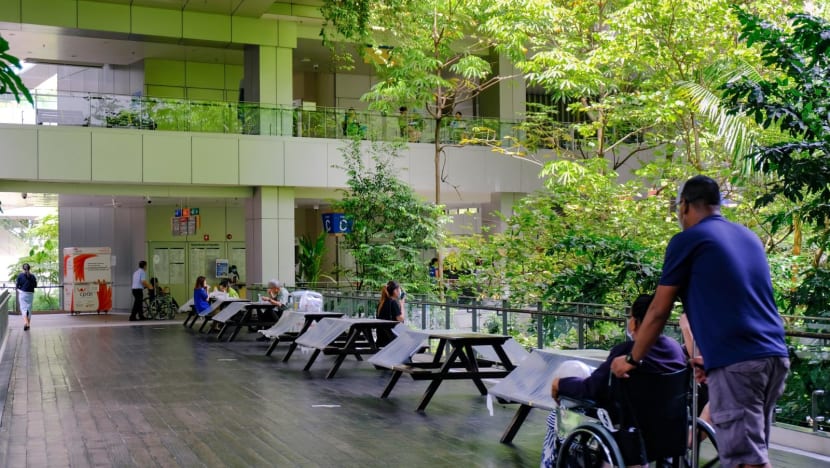25% increase in allied health professionals in Singapore from 2019 to 2023
However, there was also an increase in attrition rate of allied health professionals in the public healthcare sector.

Khoo Teck Puat Hospital in May 2020. (File photo: iStock)

This audio is generated by an AI tool.
SINGAPORE: There has been a 25 per cent increase in some allied health professions in Singapore from 2019 to 2023 amid growing demand.
The total number of registered diagnostic radiographers, occupational therapists, physiotherapists, radiation therapists and speech therapists rose from about 6,000 in 2019 to 7,500 in 2023, said Senior Parliamentary Secretary for Health Rahayu Mahzam on Tuesday (Feb 27).
However, there was also an increase in the attrition rate of allied health professionals in the public healthcare sector, from 8.9 per cent in 2018 to 11.6 per cent in 2022, she noted in response to a parliamentary question by MP Gerald Giam (WP-Aljunied) on the demand and supply of such professionals.
In the community care sector, the attrition rate of allied health professionals has fallen from 17.7 per cent in 2018 to 11.3 per cent in 2022.
The attrition rates for allied health professionals are higher than that of doctors and nurses, Ms Rahayu added in response to a supplementary question from Mr Giam.
In March 2022, then-Senior Minister of State for Health Koh Poh Koon said in parliament that the average attrition in the period of 2020 to 2021 was about 7 to 9 per cent for nurses and about 3 to 5 per cent for doctors.
ENHANCING THE ALLIED HEALTH PROFESSION
MOH continues to work with public healthcare clusters, community care organisations and Institutes of Higher Learning (IHLs) to train, attract and retain allied health professionals.
“There needs to be good career prospects and opportunities for professional development, conducive workplace environment, and salaries will have to be competitive,” said Ms Rahayu.
Public healthcare institutions had increased the starting salaries of allied health professionals in 2023. Since 2021, MOH has also supported salary enhancements in the community care sector, including for allied health professionals.
Earlier this month, MOH published salary guidelines for the community care sector, including allied health professionals. The guidelines aim to provide greater transparency about wages in the sector and help organisations attract and retain talent.
Over the last 10 years, the intake for allied health professional courses has doubled from around 270 to 500, Ms Rahayu said.
"In respect of foreign allied health professionals, we also value them and if they demonstrate their commitment to Singapore, we are also prepared to grant them PR (permanent residence) status," she added.
There are also healthcare career conversion programmes for mid-career locals to undergo relevant training for selected allied health professions.
“So these are some of the efforts we’ve put in place to enhance and actually uplift the standing of the profession within the community.”
















